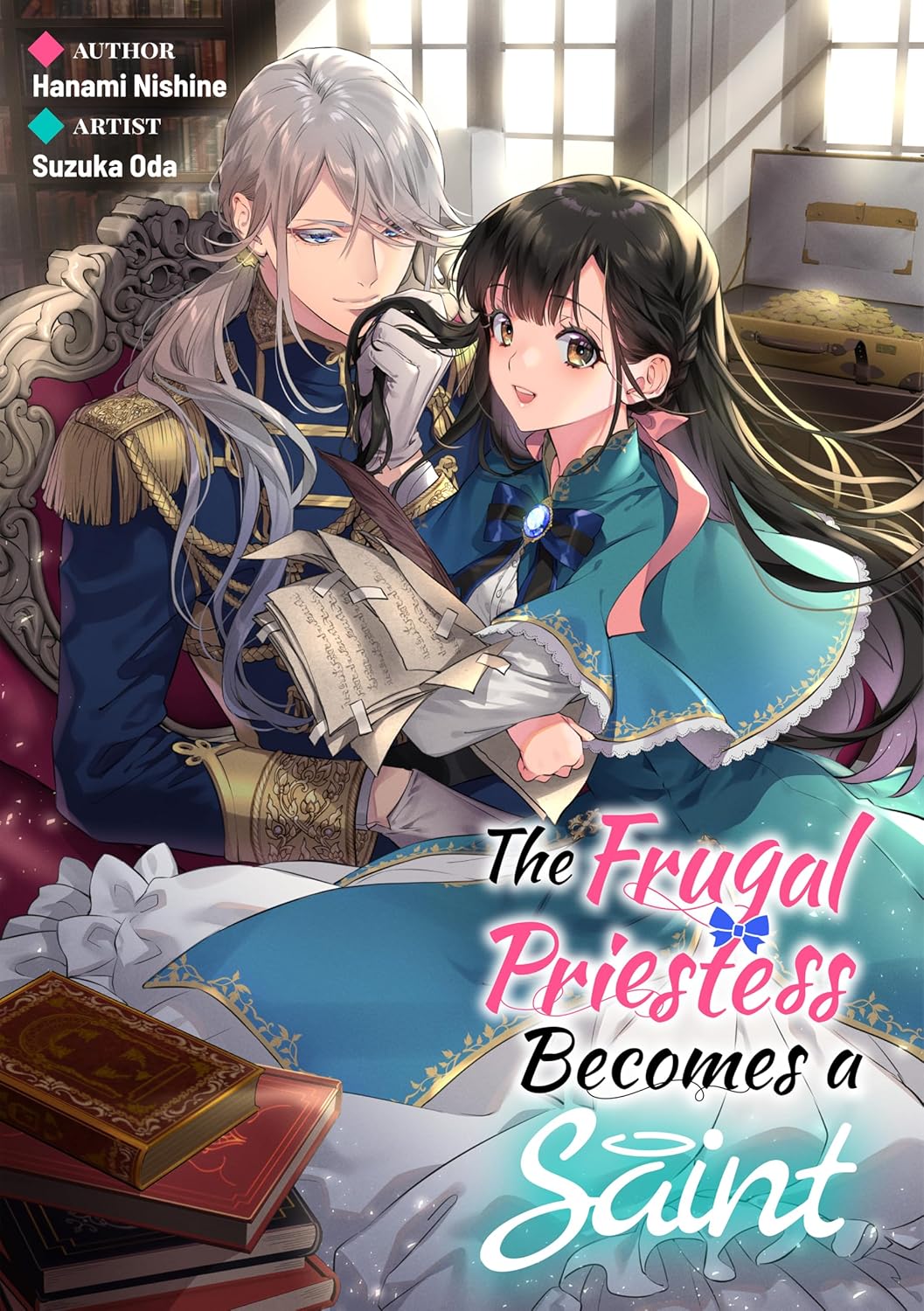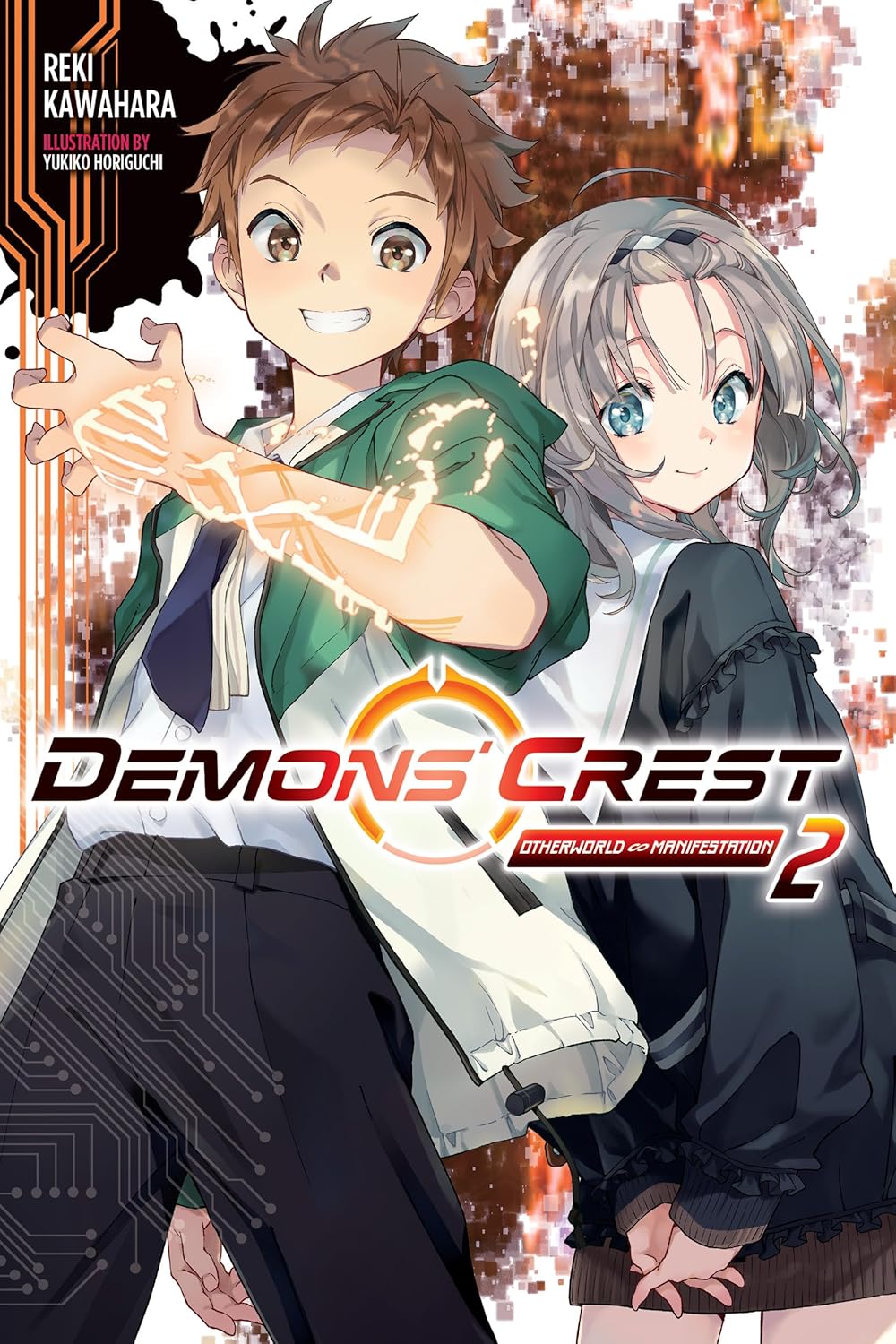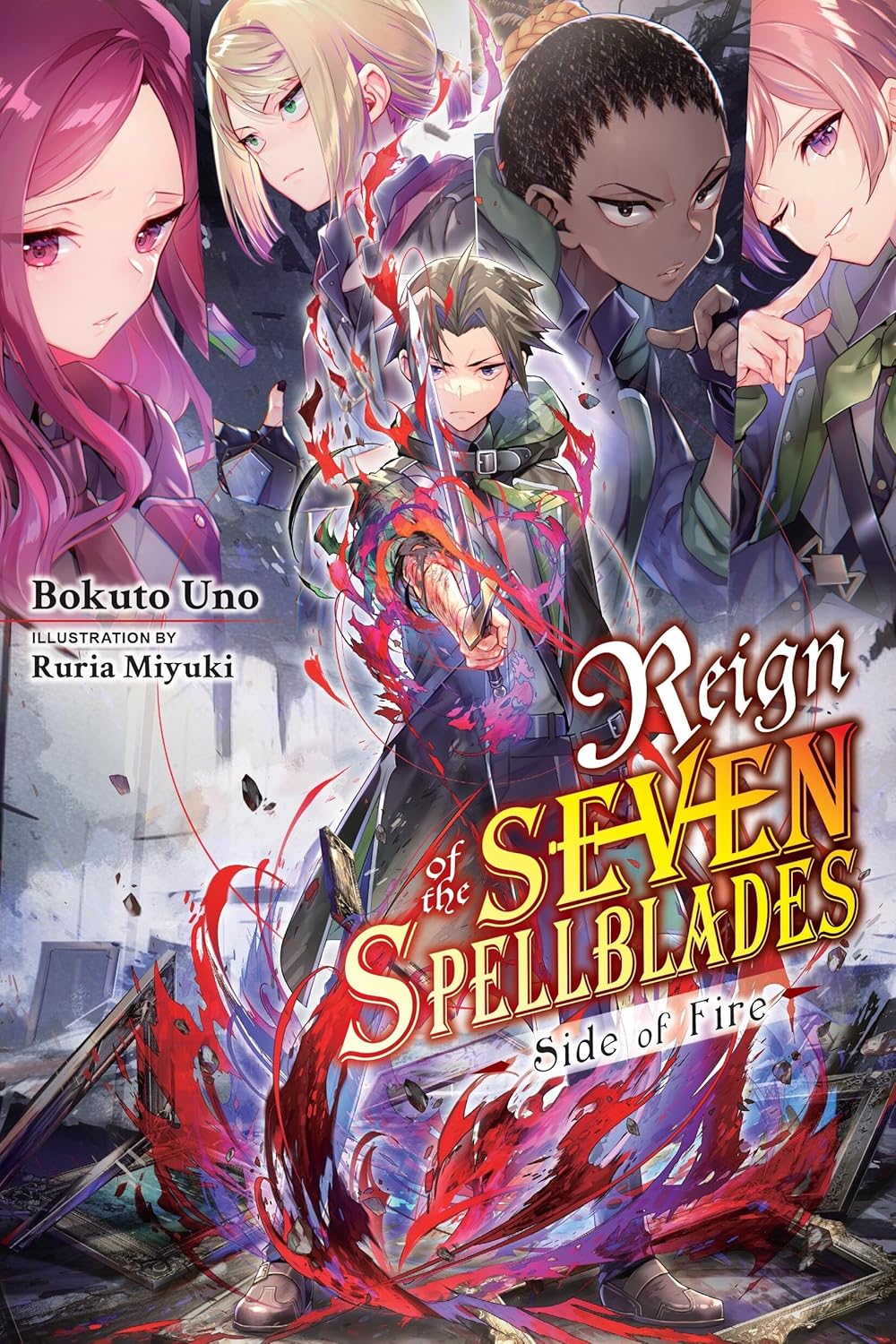By Hanami Nishine and Suzuka Oda. Released in Japan as “Isekai kara Seijo wo Yobe to Muchaburisareta Shinkan wa, Cost Performance no Tsugou de Seijo ni Naru” by Muchu Bunko Aletta. Released in North America by Cross Infinite World. Translated by Kashi Kamitoma.
I always like it when a book hits all the things I enjoy, though sometimes I have to remind myself that it’s fine because it’s fiction. The main romance here works because a) despite even the publisher labeling the Crown Prince a yandere, he’s very careful to go so far and no farther, so he gets to be extremely possessive and give chilly looks to everyone else, but around the girl he loves he’s a total soppy sweetheart. b) Fiona, our heroine, is as oblivious as a bag of things that don’t know they’re hammers, but because she’s so serious and dedicated, it’s refreshing. She lacks the ditzy quality we frequently see from this type, and it’s also very clear why she’s like this – she’s been carefully kept in a gilded cage for the last ten years. The reason for that, frankly, is not a mystery to the reader, but it is to her.
Fiona Everett is a talented priestess and aide to the pontiff. Unfortunately, the King has demanded that they summon a saint, mostly as the country next door has summoned one and he really wants to keep up with the Joneses. They already tried to summon a saint ten years ago, but it failed, and summoning one again will cost a great deal of time, manpower, and MONEY. So Fiona has an idea. Since saints traditionally have black hair, a rarity in this kingdom, and Fiona also has black hair, why doesn’t she says the spirit of the saint possessed her and she can act as a fake saint? The crown prince and the pontiff seem to go along with this pretty easily. Honestly, a bit too easily. And because Fiona is an overly serious, bookish sort, she’s decided she is the Saint of Cost Performance, balancing the books so that we see a lot more fixed bridges and a lot fewer replacement wigs.
So yeah, not to spoil too much, but Fiona actually has no memories from before she was ten years old, where she was taken in by the pontiff and also when the crown prince started doting on her. It does not take a brain surgeon to figure out the big secret everyone is covering up. The best part of the book is how the writing keeps Fiona both likeable and powerful without having to back off on her not understanding why Linus is kissing her hair, going with her wherever she goes, and having her sleep in his lap when she’s exhausted. This is played for humor, mostly in the coments from everyone around them who cannot believe she doesn’t get it, and it really is funny. Everyone calls Linus a sexual harrasser, which is true in terms of the letter of the law, I suppose, but it’s not as if Fiona ever tells him to stop either. Basically, she’s unconsciously in love with him the entire book. We also do meet another saint from a different country, who manages to be an absolute terror and makes me very happy Fiona decidedly does NOT regain her memories at the end of the book.
It’s also only one volume long, so even the series is cost-effective! If you can put up with clueless but studious heroines and handsy, possessive (but not sadistic) princes, this is a must read. Also, it has Fiona solve a problem by slapping someone in the face over and over and over again, which was glorious and I now want that in every book I read.



